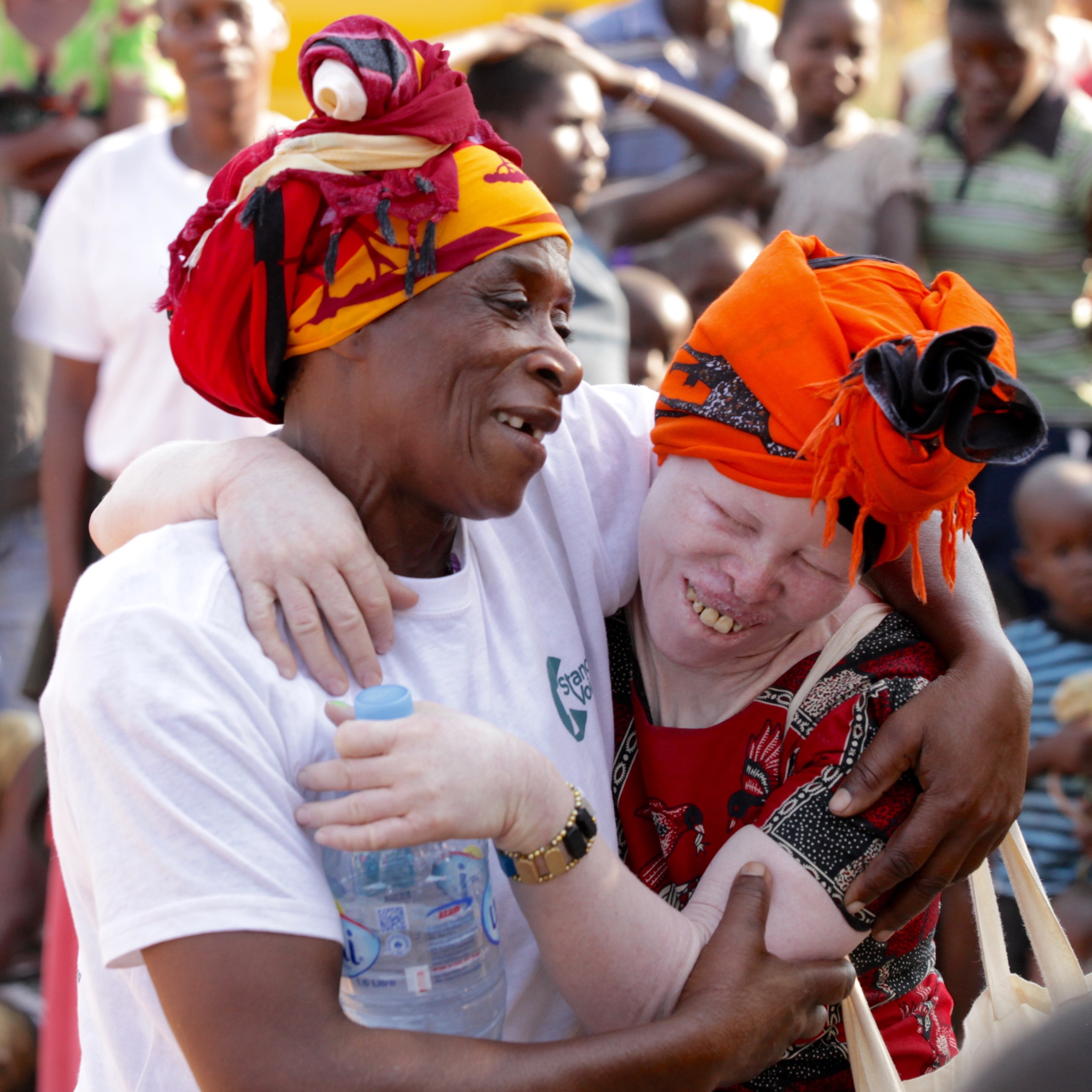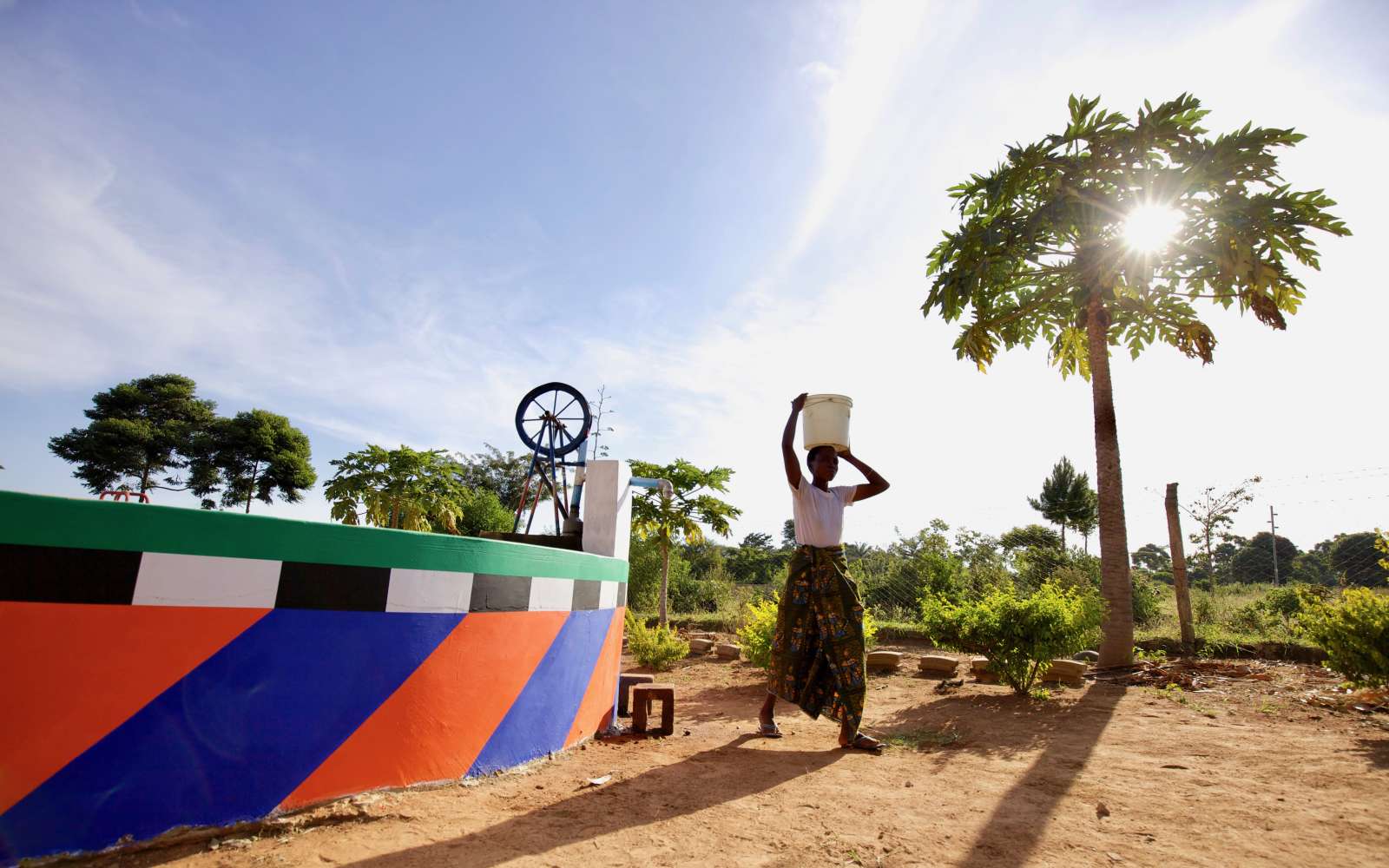
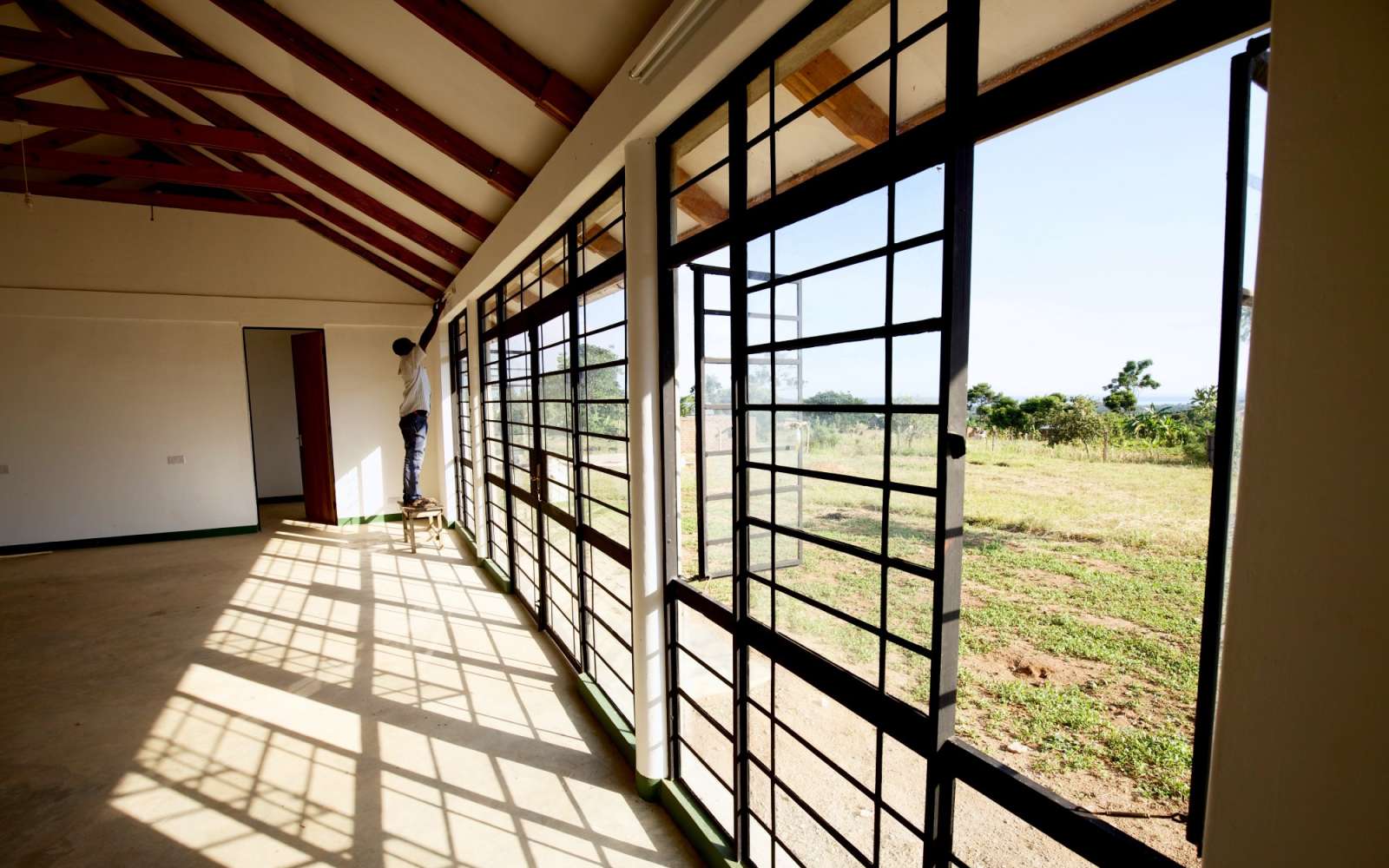
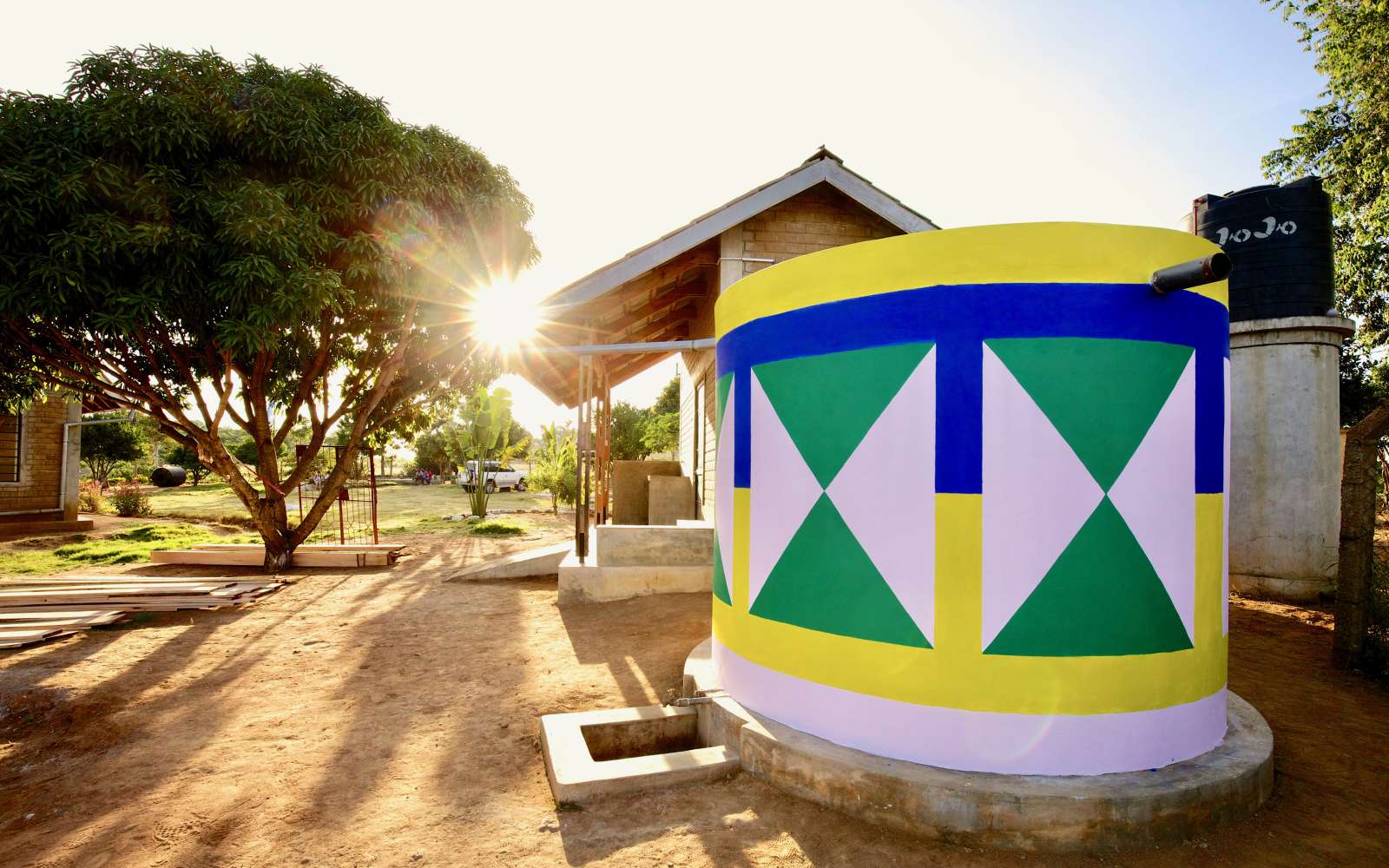
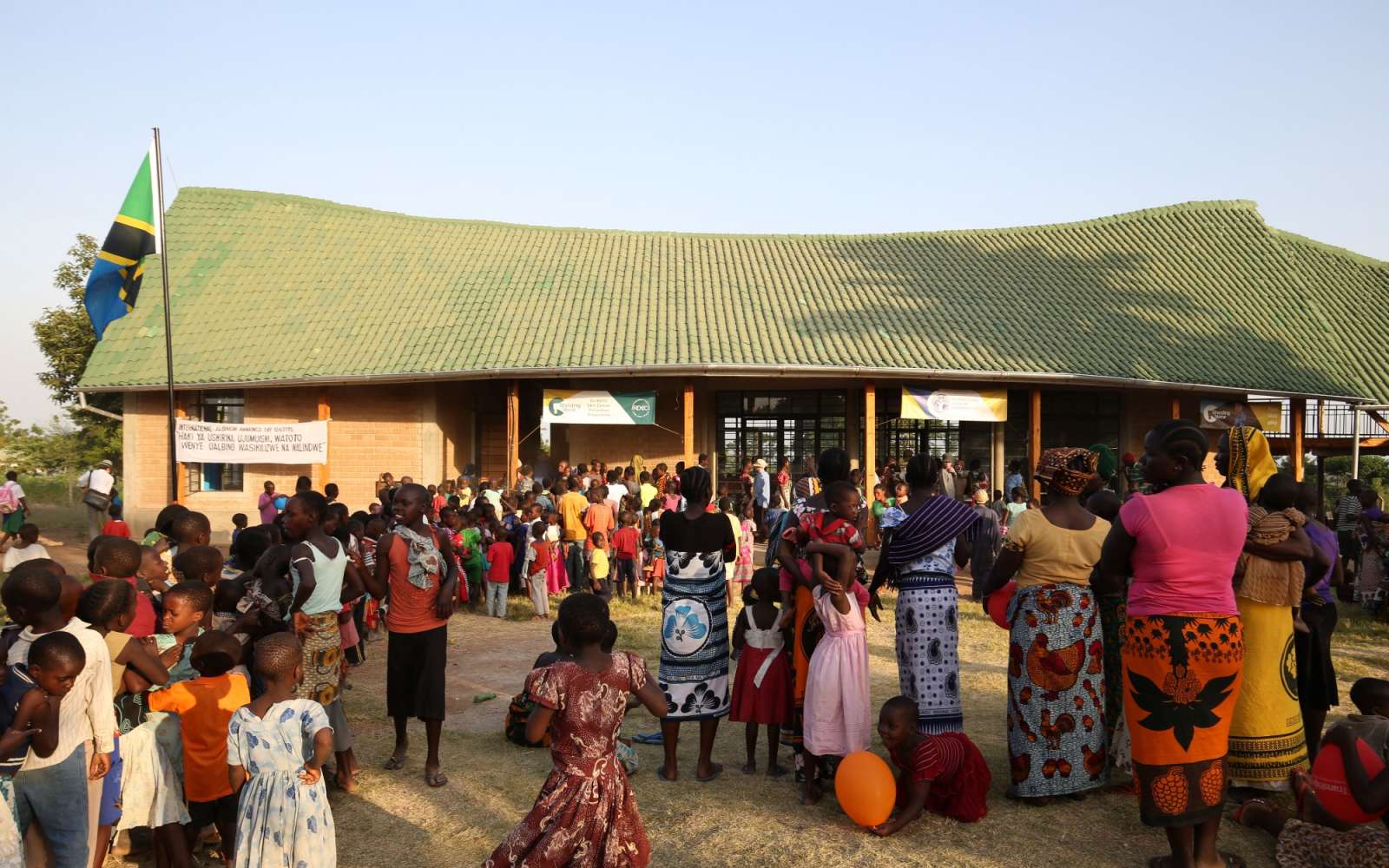
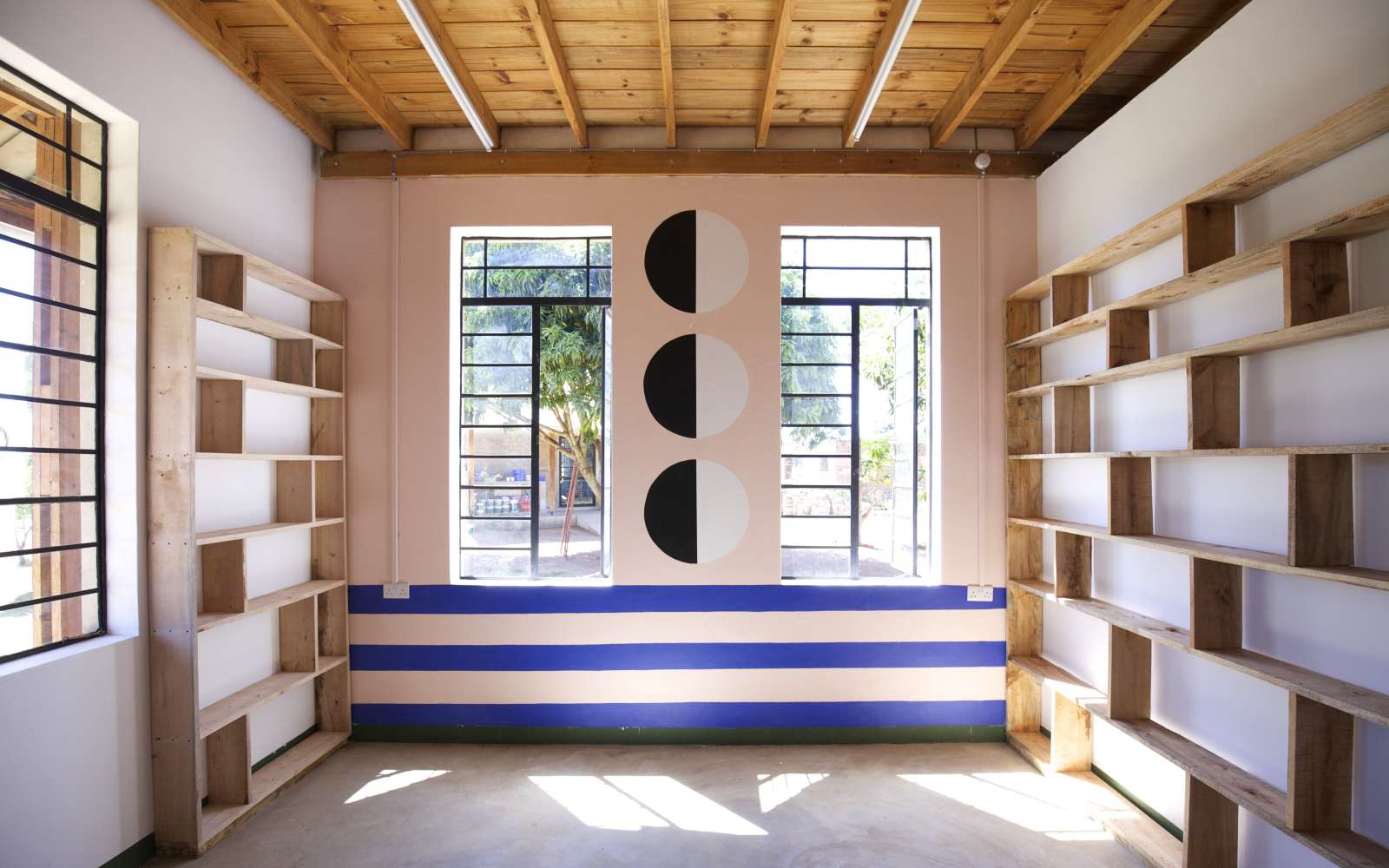
Our community training centre and hub of integration
A BLUEPRINT OF UNITY
The centre provides a place of belonging and growth for people with albinism
The Umoja Training Centre (UTC) is a community space where people with and without albinism come together to develop skills, establish businesses and form positive relationships; somewhere to belong and grow, to claim a stake in society and embrace others’ differences. ‘Umoja’ is the Swahili word for ‘Unity’.
The Umoja Training Centre is on the Tanzanian island of Ukerewe in Lake Victoria. The UTC is the result of 6 years of research and community dialogue with Ukerewe residents about their training aspirations, income-generation needs, and experiences of albinism-related stigma or social division. Planned in collaboration with the Ukerewe Albinism Society, the Centre exists as a counterforce to the isolation and exclusion of people with albinism by creating opportunities for all community members to interact in positive and mutually enriching ways. The Centre is a blueprint of successful integration and community engagement that we plan to adapt and replicate in other locations across Tanzania and East Africa.
IMPACT
The UTC currently has training programmes in 7 disciplines
40 trainees acquired skills at the UTC
26 new businesses created by the UTC
The Programme
CONSTRUCTION
The construction of the UTC has transformed perceptions of people with albinism and harnessed a newfound social unity on Ukerewe Island. In the past babies with albinism were often abandoned at birth, and mothers ostracised by their families; business owners with albinism would struggle to sell goods. For all these groups, the threat of abuse was imminent and constant.
Despite this long and multi-faceted history of segregation, people with and without albinism came together from across Ukerewe Island to build the UTC. This has bridged divides, creating areas of commonality and shared interests between formerly segregated groups. The increased community presence around the UTC has also boosted local business and enterprise, while the facility has already hosted official visits from government officials, a sign of integration and recognition scarcely imaginable before. The Centre is home to the Standing Voice and Ukerewe Albinism Society offices and was completed in September 2015.
Facilitated by Good Earth Trust Tanzania and planned in consultation with local government, the construction process marked a powerful display of unity and generated 40 new jobs locally. Residents developed transferrable skills in water harvesting, tile- and brick-making, electrics, landscaping, carpentry and woodwork. This livelihood enhancement spread throughout Ukerewe, with many who built the Centre contracted to work elsewhere on other development projects, in turn vastly improving the island’s access to clean water and sanitation.
The Interlocking Stabilised Soil Blocks (ISSBs) used to construct the UTC have been particularly instrumental in this process. Cost-effective, durable and environmentally friendly, ISSBs are made by mixing soil with clay and cement, and using machines to press this mixture into shapes. Blocks are then wet- and dry-cured, for 7 and 14 days respectively, before construction begins. This process causes no deforestation and often involves the use of local materials: for the UTC, earth was excavated from the construction site to create the soil mixture. ISSBs had never before been used on Ukerewe Island and have since grown subject to high demand. Standing Voice now hires out its equipment to support ISSB production elsewhere, channelling subsequent funds back into the maintenance of the UTC, which now forms the core of a new, economically nourishing cycle of income-generation. In its environmental and social impacts, the Centre has been sustainable since the beginning.
INNOVATIVE DESIGN
The social purpose of the UTC is intimately tied to its design. The Centre and its grounds cater for the specific needs of people with albinism. The buildings are positioned to minimise exposure to sunlight and wind, creating a tranquil and shaded environment for visitors. The gardens’ many trees afford additional cover. The Centre itself has high ceilings and broad overhangs, with ample shade to guard against UV radiation and keep the building cool in summer. Large windows and a panoramic viewing platform meanwhile ensure an open, spacious atmosphere. The UTC has wheelchair ramps for disabled access, and a multi-functional kitchen to accommodate both Western and Tanzanian styles of cooking. These features are architectural expressions of the UTC’s broader mission to promote social inclusion and harmony.
The Centre uses Ventilated Improved Pit Latrines (VIP latrines) to maximise sustainability. VIP latrines enable ventilation and fly control around the latrine, reducing odour and minimising the spread of disease. Waste collects in a pit underneath the cubicle; this pit has a vent pipe covered by a fly-proof screen at the top. In this type of latrine, air flows down the squat hole, into the pit and up through the vent pipe, reducing smells in the cubicle. The latrine should be built as an open cylinder or with gaps under its doors to enable a steady flow of air. Constructing the latrine away from tall buildings or trees is similarly crucial for ventilation, while building at a safe distance from the nearest drinking source is important for safety. Critically, the latrine must be kept dark so that the pipe, and not the squat hole, is the pit’s chief source of light. Flies that have entered the pit will be drawn to this light; however, because the pipe has a fly-proof screen, they will be unable to escape and will eventually die.
The UTC also uses rainwater tanks. The buildings have been designed so gutters are directed into these tanks, which collect and harvest up to 160,000 litres of rainwater for later use in washing, cooking and agriculture. A hand pump is used to retrieve water.
These innovations have been replicated in nearby communities with great success. This wider social impact has been a powerful antidote to stigma, enabling community members to view their own wellbeing and the wellbeing of people with albinism as two sides of the same coin.
TRAINING AND INCOME-GENERATION
The Centre is designed to house a wealth of training initiatives, all focused on skills development and livelihood enhancement for everyone in the community, not just people with albinism. This is critical for ensuring the holistic betterment of the community and the long-term integration of persons with albinism; the Centre is a community asset and a collective space, one where interests are shared and divisions bridged.
The UTC constantly evolves, developing and refining its initiatives in response to community feedback. The Centre also links with our Tailored Support Programme: beneficiaries of Tailored Support can come to the UTC for training and employment, enabling them to develop skills and pursue their ambitions.
The Centre is designed to provide skills training and business development, community support groups, and a comfortable and welcoming environment in which to socialise. The UTC houses formal training programs for the local community, enabling us to deliver vocational initiatives in construction and building, printing and carving, tailoring, photography, and radio broadcasting. We are now looking to broaden this remit to include ceramics, agri-business, and financial management and accountancy. Visitors will soon share access to an internet and computer room, seminar meeting spaces, and a multimedia library stocking books and presentations to educate users about albinism in a free, inclusive and accessible way.
Training equips community members with the skills, abilities and confidence to pursue their own visions of personal betterment. People go on to find new employment, establish businesses and launch entrepreneurial projects. Standing Voice provides long-term assistance to facilitate these achievements, and the doors of the UTC remain open for mentoring, further learning, equipment and career advice. The Centre is a lifelong pillar of support for the Ukerewe community, leaving social inclusion in its wake.
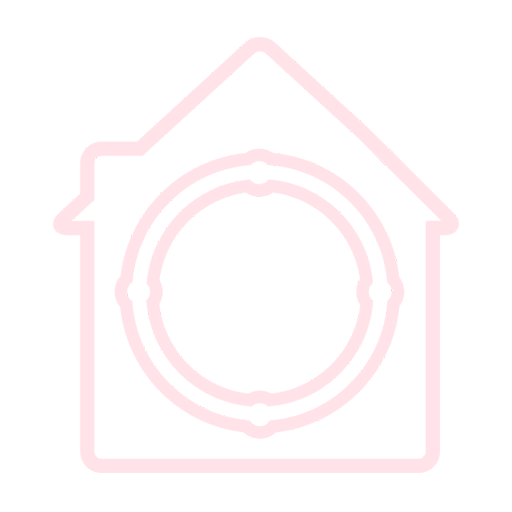
30,000 ISSBs
Number of Interlocking Stabilised Soil Blocks produced to build the UTC
Summer Skills Workshop
The biggest event in the UTC annual calendar - email info@standingvoice.org to apply!
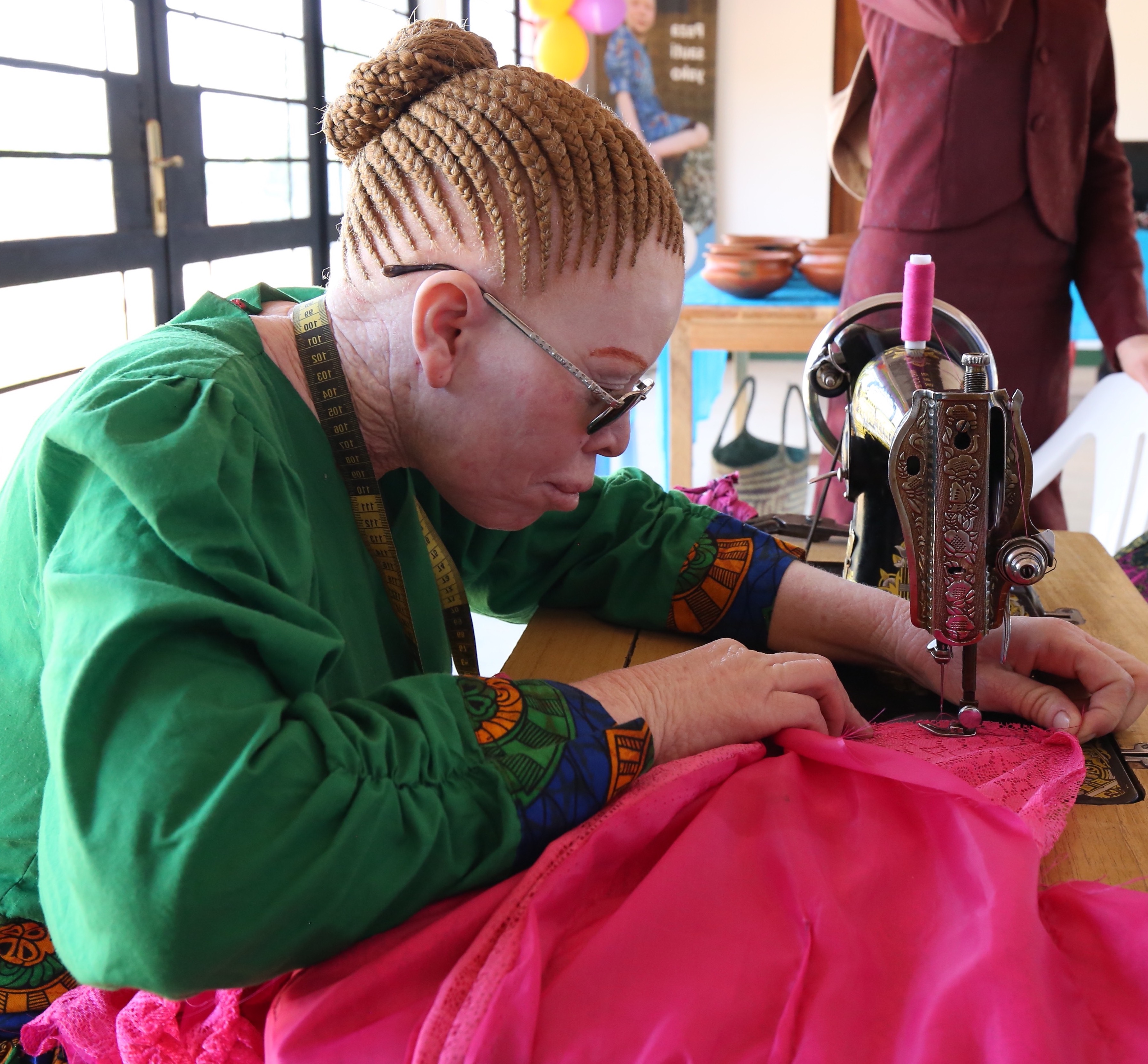
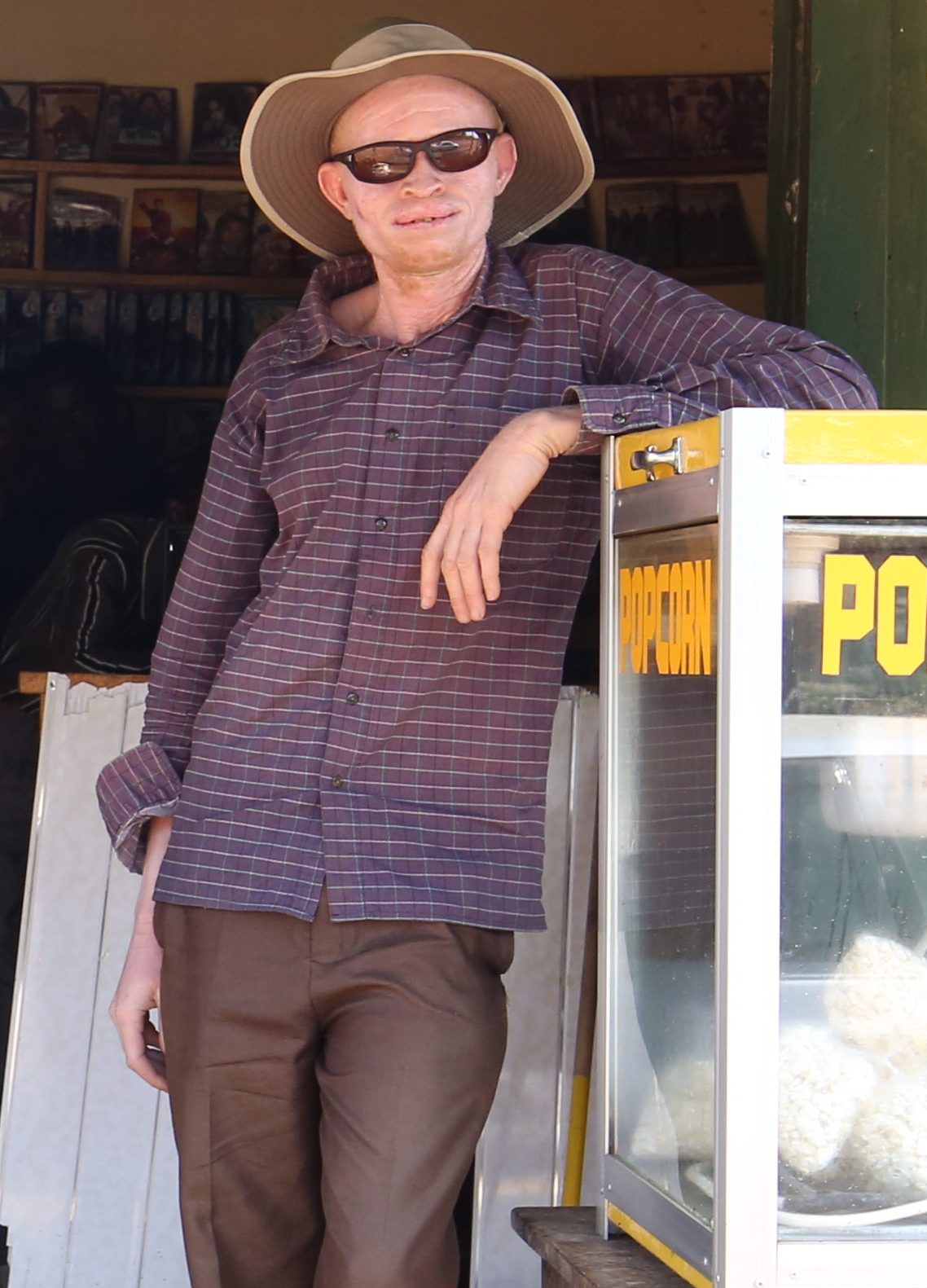
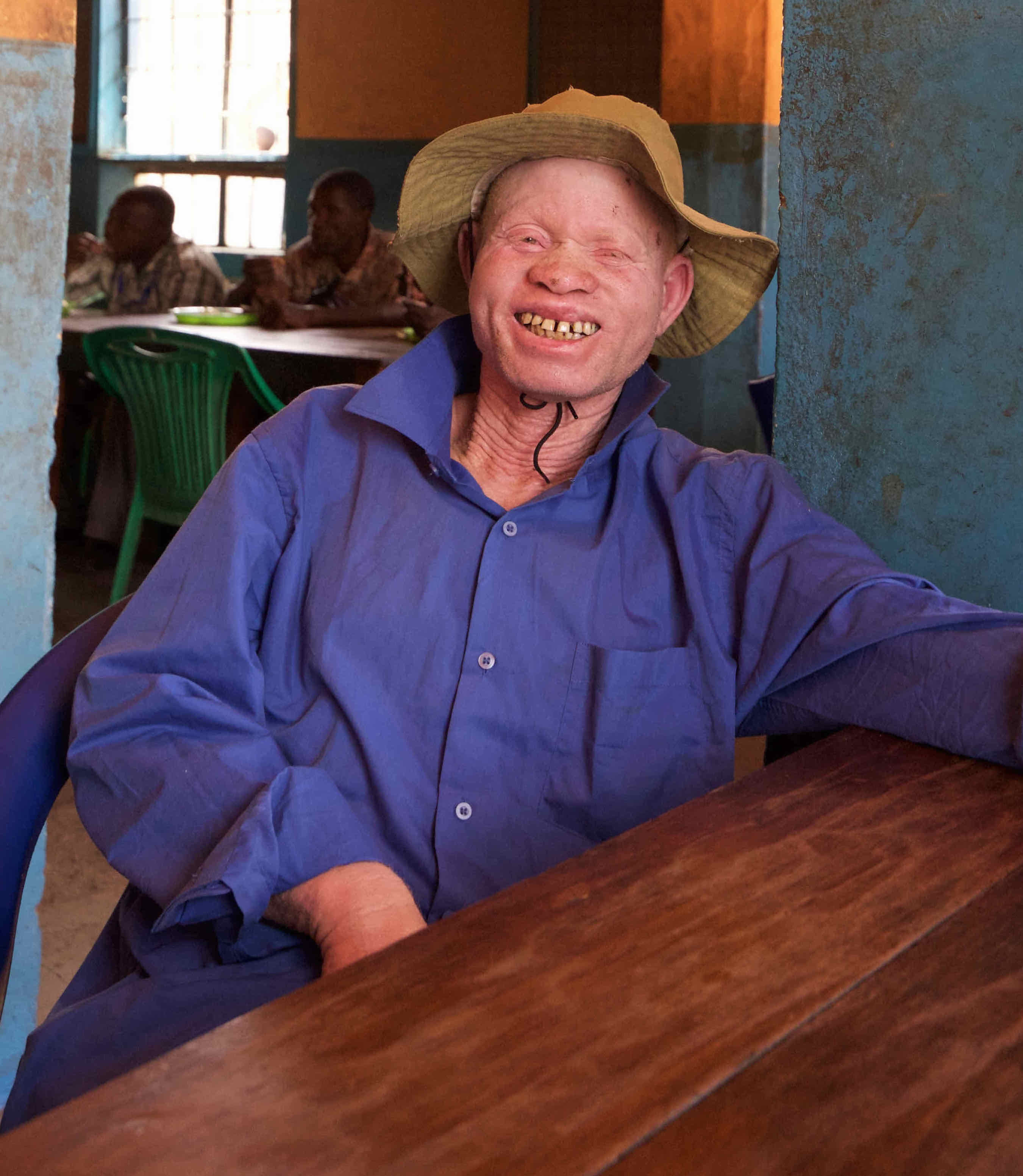
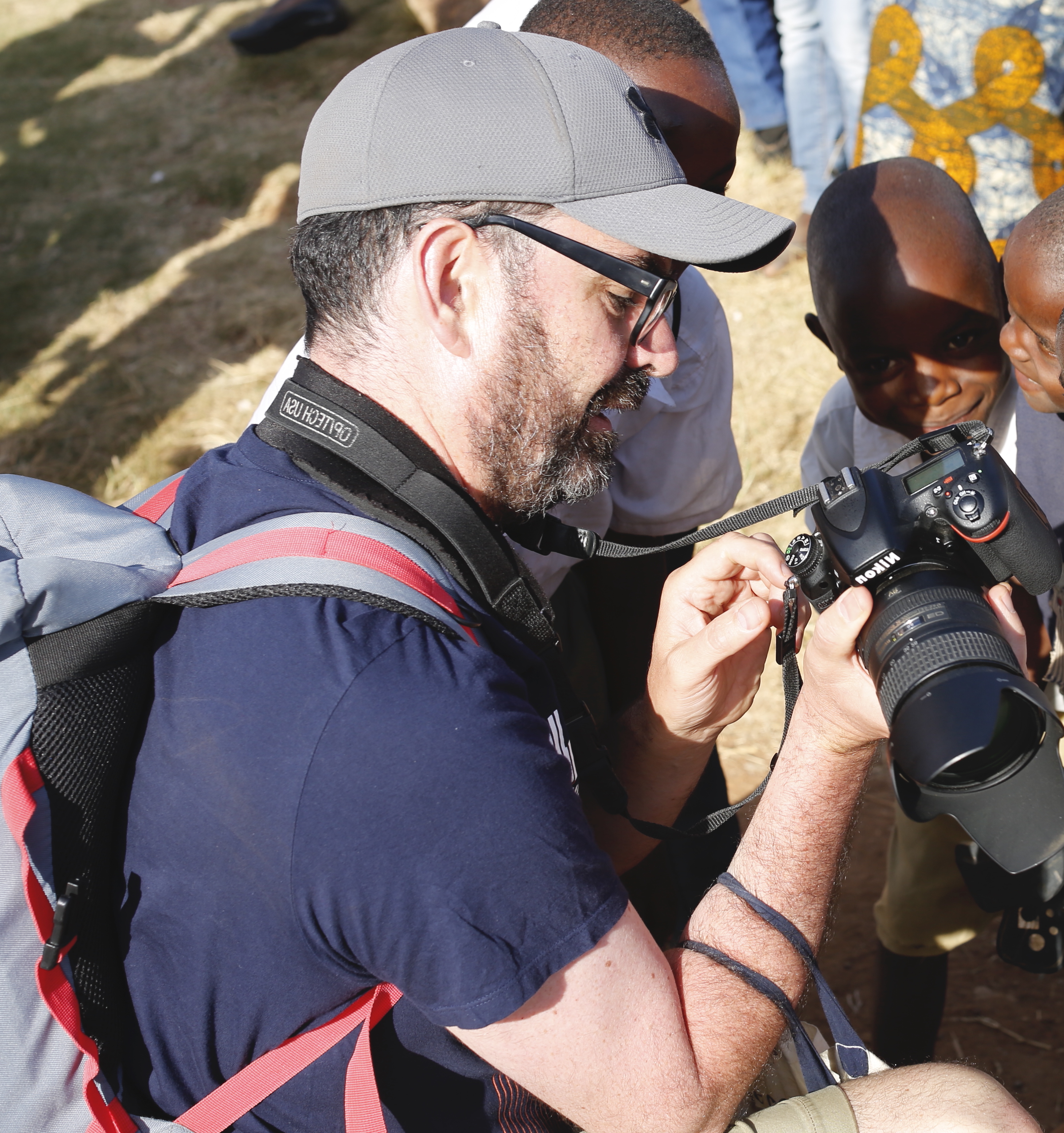
"Standing Voice’s tailoring workshops have helped this community to develop skills and businesses."
Florentina Ngoroma – Beneficiary
"I used my grant from Standing Voice to buy a new DVD player and computer, which have helped my cinema business grow."
Riziki Julius – Beneficiary
"The UTC has united our community and changed our lives forever."
Ramadhan Khalfan – Chairman of the Ukerewe Albinism Society
"The Summer Skills Workshop brings an entire community together through shared experiences and learning. "
Brian Benson – UTC Photography Trainer



